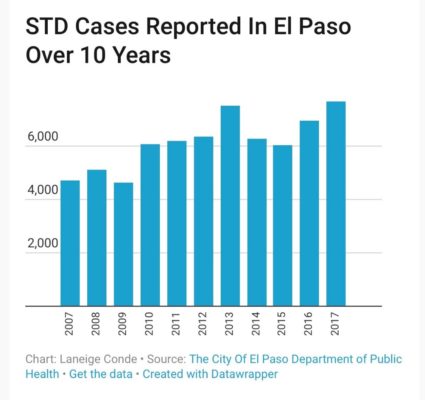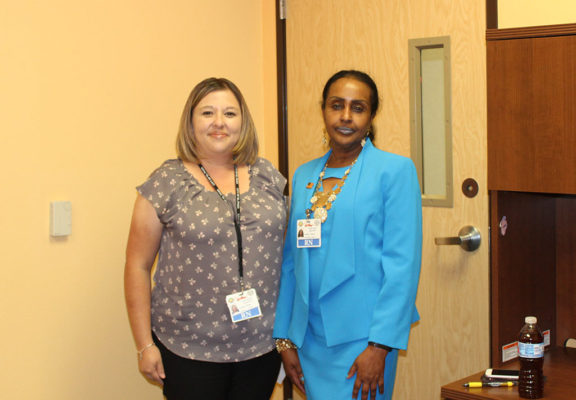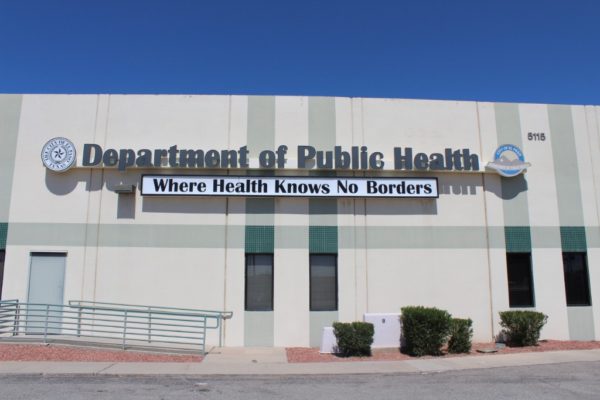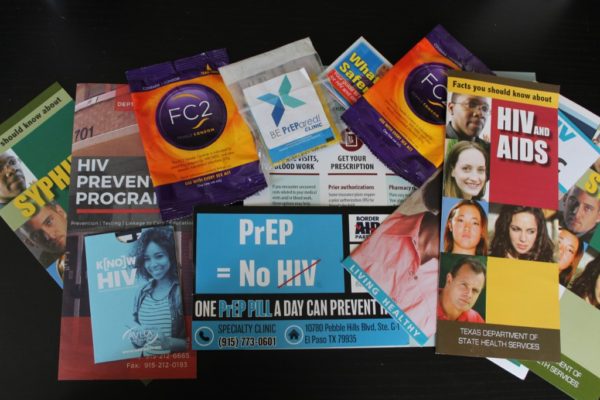Sexually transmitted disease rates in El Paso spiked to record highs in recent years, according to public health department data.
The El Paso Department of Public Health reported a 10-year high of 7,681 new cases of sexually transmitted diseases (STDs) in 2017 – an 11 percent increase from 2016 and a 62 percent increase from 2007.

STD Rates Reported By Year Using Data From El Paso Department of Public Health
“Nationwide it’s on the rise. STDs, the whole nine yards, the gonorrhea, the syphilis, the chlamydia, this is not unique for El Paso,” said Faduma Shegow, clinic services manager for the STD clinic of El Paso. “It’s happening nationwide.”
Sexually transmitted diseases covered in the report include curable diseases such as chlamydia, gonorrhea, and syphilis, and chronic diseases such as HIV, hepatitis C, and AIDS. Herpes and HPV data was not available through the El Paso Department of Public Health.
Health officials and local advocacy groups are trying to combat the rising numbers through outreach and education, said Elias Gonzalez, the HIV prevention and education specialist for the City of El Paso’s HIV Prevention Program.
The city maintains an HIV prevention program and an STD preventative medicine program to provide education on everything from the biology of STDs, to how they are contracted, treated, and how to live with a positive diagnosis.
Through education, the city is hoping to help residents become more engaged in protecting their health and the community’s health.
“I think many see it as a stigma to come to the STD clinic, they think ‘no, it’s a bad place and only very promiscuous people go’ and that’s not true,” said Tabatha Olague, nursing program manager for the STD clinic of El Paso. ” People come in monogamous relationships, they come yearly just to get checked,”

Tabatha Olauge and Faduma Shegow of the STD clinic say it is important to educate El Pasoans on seeking care for their sexual health. Photo credit: Laneige Conde
Couples in a monogamous relationship should get tested once a year and single people should get tested every three to six months, if they are sexually active, Olague said.
She also recommended that people who use intravenous drugs get tested every three to six months. This can help to significantly decrease STD rates, Olague said.
More frequent testing is also helpful to detect certain STDs that have delayed, mild, or no symptoms. Symptoms can also very depending on the person.
“It’s individual, your body’s immunity, your strength and all that, and your health goes into it, some people show the symptoms, some people won’t show the symptoms but with the test we can tell,” Shegow said.
The STD clinic of El Paso also is turning to preventative measures. They have implemented partner therapy, in which they will give medication for the partner of someone diagnosed with an STD if they are too afraid to come to the clinic in person. If the person has multiple partners, then they will provide enough medication for each partner.
“This way that we do this is much more effective, because the person doesn’t even know that we know them, they are getting medication, they are getting treatment, so it’s a super plus and I think this is going to help our numbers too,” Shegow said.
The HIV Prevention Program is also striving to reduce infection rates and help citizens who are HIV or AIDS positive. The program partners with the M Factor, a local organization that works mainly with gay and bisexual men who have sex with men, however are open to anyone who wants more information on HIV, AIDS, and HEP C.

Elias Gonzalez, an HIV prevention specialist in El Paso, says rates of sexually transmitted diseases can be lowered through better community education. Photo credit: Laneige Conde
The two organizations promote the U=U campaign for people living with HIV. The campaign, which stands for Undetectable = Untransmittable, follows the premise that when people who have an HIV positive diagnosis are regularly taking medication and visiting a doctor, they can reach an undetectable status. The virus is suppressed enough that it does not show up on modern testing. The person still has HIV, however the chances of passing it on decrease significantly, Gonzalez said.
Routine testing is necessary for early detection, which can lead to HIV positive people achieving an undetectable viral status. This will help to decrease the spread of HIV and keep HIV positive people from contracting AIDS.
“That’s why we promote a U=U stand frame because stigma has a very big impact on the lives of people living with HIV. People living with HIV often have to deal with concerns that they’re diseased or unclean and the fact of the matter is as long as their in treatment, as long as their undetectable, they pose very little to no risk to people not living with HIV,” Gonzalez said.

El Pasoans can visit the Department of Public Health on El Paso Street for STD testing.
El Pasoans can begin getting tested at the age of 13. All testing centers in El Paso are confidential and non-discriminatory. They want everyone to feel comfortable seeking help.
“We don’t ask about citizenship status or anything like that because that’s not necessary for what we do and it’s more important that people understand their health at this point,” Gonzalez said.

El Paso clinics distribute preventative and bilingual literature to help educate patients on the importance of good sexual health. Photo credit: Laneige Conde
The STD clinic of El Paso tests for chlamydia, syphilis, gonorrhea, HEP C, HIV and AIDS. They can also test for yeast infections, bacterial vaginosis and trich in women, if requested. They suggest visiting an OBGYN to get tested for HPV. The test is $40, however they will never turn away a patient that cannot pay.
The HIV Prevention Program and M Factor provide free HIV, syphilis, and HEP C testing, and will refer patients to further care if needed. They also do off-site testing.
To view clinic hours of operation and after hours testing dates, visit The El Paso Department of Public Health website at www.elpasotexas.gov/public-health.

